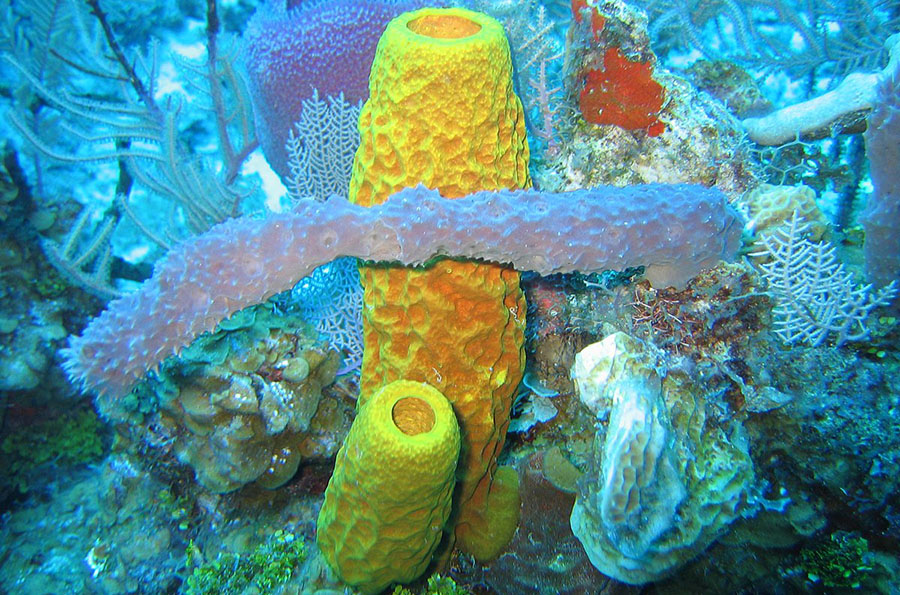
Sponge biodiversity and morphotypes present off the coast of the Cayman Islands in the Caribbean Sea. Pictured here are the yellow tube sponge (Aplysina fistularis), the purple vase sponge (Niphates digitalis), the red encrusting sponge (Spirastrella coccinea) and the gray rope sponge (Callyspongia sp.). Image courtesy of the Twilight Zone Expedition Team 2007, National Oceanic and Atmospheric Administration-Ocean Explorer
BOONE, N.C. — Thanks to a National Science Foundation (NSF) grant, Dr. Cara Fiore, visiting assistant professor in Appalachian State University’s Department of Biology, along with an interdisciplinary team will investigate microbially mediated ecological diversification in sponges found in the Caribbean. Fiore received a total of $208,119 in funding.
Her teammates for the project include Dr. Cole Easson, adjunct professor at Nova Southeastern University; Dr. Christopher Freeman, postdoctoral fellow with the Smithsonian Marine Station; and Robert Thacker, professor in and chair of the Department of Ecology and Evolution at Stony Brook University.
According to Fiore, “Coral reefs represent a paradox because, despite their immense productivity and biodiversity, they are found in nutrient-poor habitats that are equivalent to ‘marine deserts.’
“In part, the success of many coral reef organisms like sponges and corals, are a result of an association of the host sponge or coral with diverse symbiotic microbes that live on and within the host. These microbes help recycle nutrients for the host organism and can provide new nutrients to the host.”
She said sponges are particularly abundant in the Caribbean, where their biomass exceeds that of reef-building corals. “Sponges are unique on coral reefs because they are efficient at filtering seawater for nutrients, can grow to a large size and they are prevalent on reefs worldwide,” Fiore said.
“For almost a quarter century, this success of sponge populations in the Caribbean has been linked to their filter-feeding ability; however, recent work has demonstrated that coexisting sponge species host unique communities of bacterial symbionts that might provide nutrients to each sponge host.”
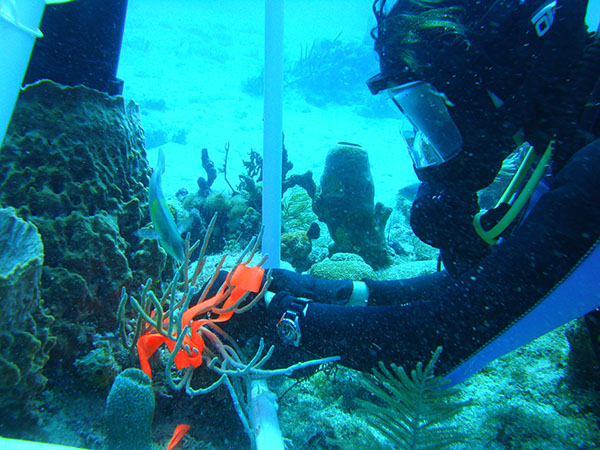
Dr. Cara Fiore, visiting assistant professor of biology at Appalachian, adds fluorescent dye to the base of a sea sponge to estimate the rate at which the sponge pumps water through its body. For this Aquarius mission, she spent 10 days living in an underwater habitat off the coast of Key Largo, Florida. Photo submitted
In her commentary on the research project, Fiore explained, “We will test the hypothesis that all sponge species in the Caribbean do not obtain nutrients in the same way, rather, they have unique nutritional strategies that are mediated by their microbial communities. This research will combine field experiments and modern analytical tools to investigate environmental and physiological factors that may have led to the diverse and abundant sponge populations observed in the Caribbean today.”
One Appalachian graduate student, as well as one to two undergraduate students, will be involved in the research.
What do you think?
Share your feedback on this story.
About the Department of Biology
The Department of Biology is a community of teacher-scholars, with faculty representing the full breadth of biological specializations — from molecular genetics to landscape/ecosystem ecology. The department seeks to produce graduates with sound scientific knowledge, the skills to create new knowledge, and the excitement and appreciation of scientific discovery. Learn more at https://biology.appstate.edu.
About the College of Arts and Sciences
The College of Arts and Sciences (CAS) at Appalachian State University is home to 17 academic departments, two centers and one residential college. These units span the humanities and the social, mathematical and natural sciences. CAS aims to develop a distinctive identity built upon our university's strengths, traditions and locations. The college’s values lie not only in service to the university and local community, but through inspiring, training, educating and sustaining the development of its students as global citizens. More than 6,800 student majors are enrolled in the college. As the college is also largely responsible for implementing App State’s general education curriculum, it is heavily involved in the education of all students at the university, including those pursuing majors in other colleges. Learn more at https://cas.appstate.edu.
About Appalachian State University
As a premier public institution, Appalachian State University prepares students to lead purposeful lives. App State is one of 17 campuses in the University of North Carolina System, with a national reputation for innovative teaching and opening access to a high-quality, cost-effective education. The university enrolls more than 21,000 students, has a low student-to-faculty ratio and offers more than 150 undergraduate and 80 graduate majors at its Boone and Hickory campuses and through App State Online. Learn more at https://www.appstate.edu.
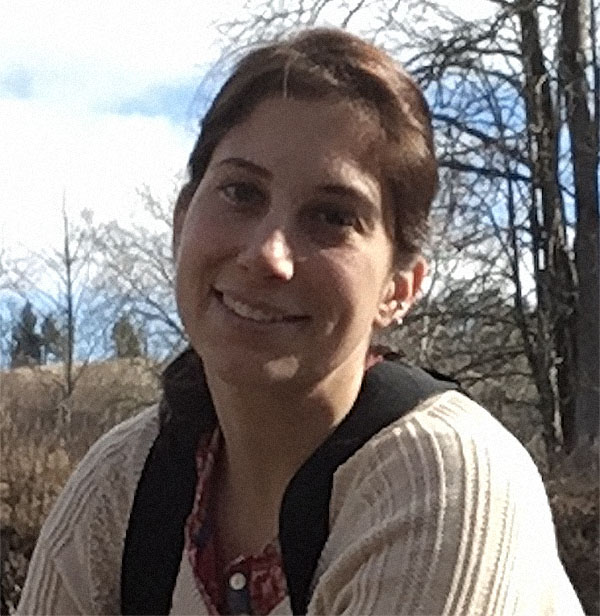
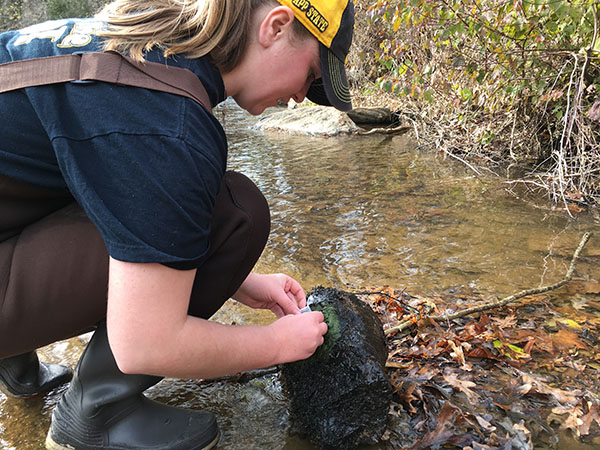
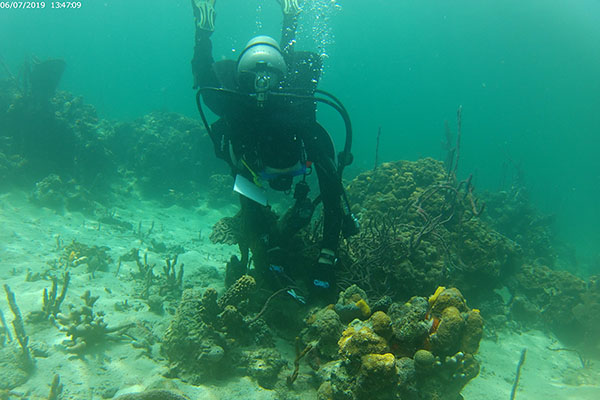



![How NCInnovation Is Rethinking Economic Development in North Carolina [faculty featured]](/_images/_posts/2026/02/rethinking-economic-development-600x400.jpg)







